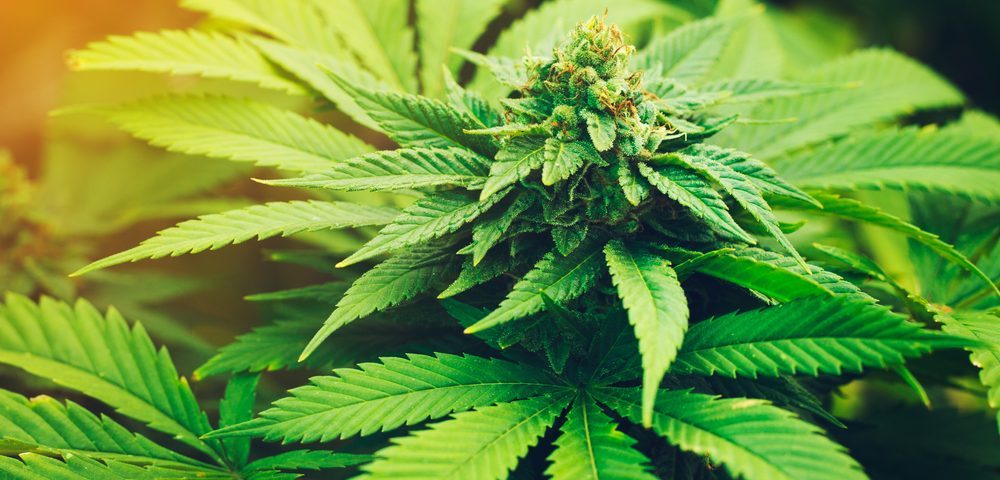The main psychoactive ingredient of marijuana, the cannabinoid 47 delta 9-tetrahydrocannabinol (THC), limited the development and symptoms of endometriosis in a mouse model of the disease, a recent study showed.
As medical THC is now available in several countries, these findings may support its use for managing endometriosis-associated pain.
The study, “Disease-modifying effects of natural delta 9-tetrahydrocannabinol 1in endometriosis-associated pain,” was published in the journal eLife.
Endometriosis is a chronic inflammatory disease that affects an average of 1 in 10 women of childbearing age.
Current clinical management of endometriosis is often unsatisfactory. One common treatment is hormonal therapy, which can lead to problems with fertility or cause emotional distress.
Another is surgery, which is often associated with high rates of recurrence and post-surgical pain.
Recent legalization of marijuana for medical reasons across North America and Europe has led to increased availability of cannabinoids, compounds that occur naturally in the cannabis plant. These compounds act on cannabinoid receptors in the brain, and can alter signaling — including pain signaling.
Multiple studies suggest that THC, the primary psychoactive compound in cannabis, is effective at relieving chronic pain.
But while THC can provide pain relief in certain conditions, it is not yet clear whether it can help patients with endometriosis. THC can also have side effects, including cognitive deficits and anxiety.
Researchers at the University Pompeu Fabra in Barcelona set out to investigate the effect of natural THC on endometriosis.
“With a lack of effective treatments, women with endometriosis usually rely on self-management strategies like dietary changes or exercise,” Rafael Maldonado, a professor at the University Pompeu Fabra and senior author of the study, said in a press release. “Although cannabis comes with a large number of potential side effects, its medicinal properties could provide pain relief in endometriosis and other conditions.”
The researchers used a female mouse model of endometriosis. Mice were subjected to surgical implantation of endometrial tissue in the abdomen, or to a sham procedure in which fragments of abdominal fat were implanted to serve as a control group.
Mice with endometrial implants developed mechanical hypersensitivity (pain) in the abdomen, and exhibited mild anxiety-like behavior — similar to symptoms seen in women with endometriosis.
Daily treatment for 28 days with THC at a dose of 2 milligrams per kilogram of body weight (2 mg/kg) alleviated the mechanical hypersensitivity and pain, and restored cognitive function, including an improvement in memory.
However, “the pain-relieving effects of this particular dose of THC were not accompanied by a modification of anxiety-like behavior,” the researchers wrote.
THC also blocked endometrial tissue growth outside of the endometrium — the hallmark of endometriosis. Its use did not lead to any overt effects on ovarian follicle maturation and luteinization — important processes for ovary functioning and fertility.
“These data highlight the interest of scheduled clinical trials designed to investigate possible benefits of THC for women with endometriosis,” the researchers wrote.
“Together, our findings show that THC limits the development and symptoms of endometriosis in an experimental model and highlight the interest of conducting further research to ensure the safety and beneficial effects of this treatment in women with endometriosis,” said Alejandra Escudero-Lara, a PhD student at the University Pompeu Fabra and the study’s first author.
“Since medical THC is available in some countries, the findings of our study may be of interest for gynecologists and pain specialists who manage the treatment of women with endometrial pain. But it is crucial to underline that the use of cannabis in unregulated scenarios should be discouraged given the serious risks associated with its consumption,” Maldonado said.
The study mentioned plans for a Phase 2 clinical trial (NCT03875261) of “cannabinoid derivates” (50% THC) in treating the symptoms of deep endometriosis. But the status of this single-site study in Spain in 10 patients, which was set to run from April to July 2019, is not clear.

